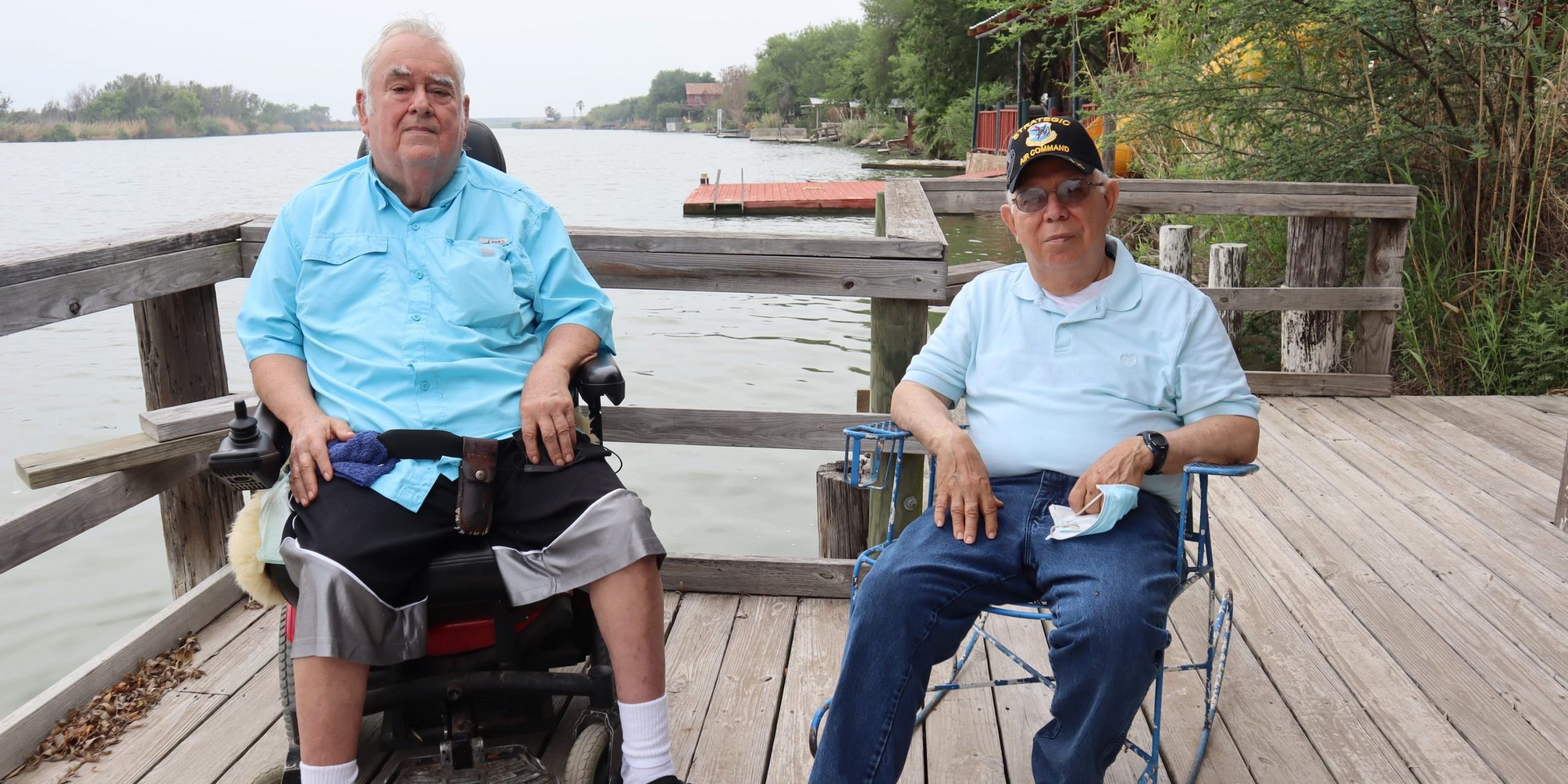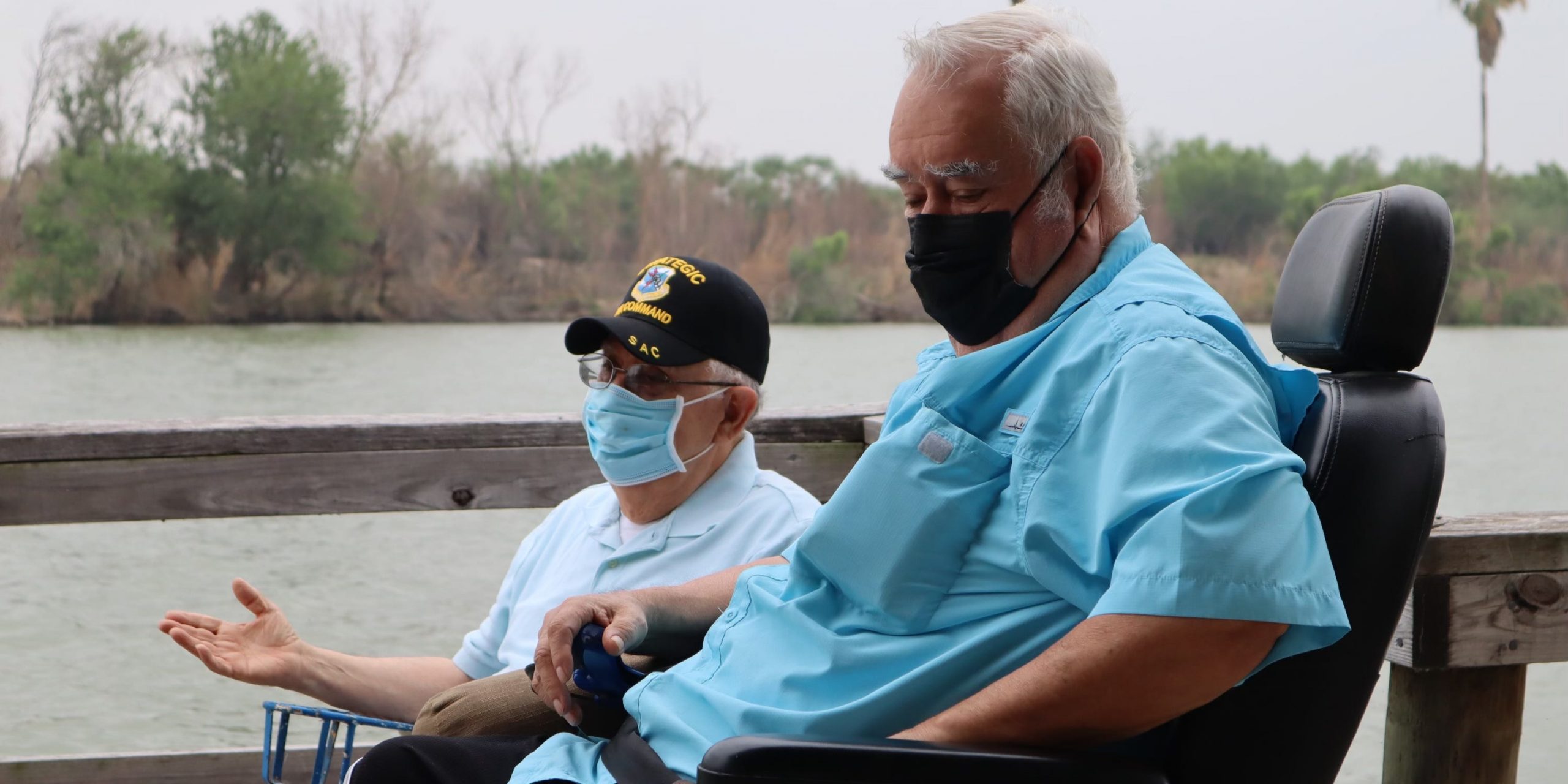
Texas Civil Rights Project
- On Wednesday, a federal judge in McAllen, Texas, granted the government immediate seizure of a South Texas family's land.
- The Cavazos family is set to lose 6.6 acres of land, as the Biden administration fails to put forth a plan to repurpose emergency border wall funding.
- "You told us one thing, and now you're doing something else," Rey Anzaldua Cavazos told Insider.
- See more stories on Insider's business page.
Nestled on the banks of the Rio Grande, the Cavazos family's land near Mission, Texas, has been passed down for three generations and weathered presidential administrations since Dwight Eisenhower.
Cousins Fred and Reynaldo "Rey" Cavazos learned to work the land as kids and their grandmother, Eloisa Rosa Garza Cavazos showed them how to sprout jalapeño, cilantro, and watermelon. Eloisa bought the land in the 1950s and made her grandchildren promise to never sell it and always to fight for it.
Their fathers taught them to hunt and live off of the near 60-acre spread of land.
However, a federal judge on Wednesday granted the government's request for the immediate seizure of 6.6 acres of the Cavazos family land, and the Biden administration could roll in the bulldozers at any moment, breaking an early campaign promise.
The Cavazos family has resisted efforts, from President George W. Bush's administration through President Donald Trump's administration – and now under President Joe Biden – to give up their land for border wall construction.
For decades, Rey, and his cousins Lili and Fred, have been honoring the promise to their grandmother, dedicating themselves to the land.
In 2017, the Cavazos family was one of over a hundred South Texas families served an eminent domain lawsuit by the federal government, a legal process in which the government can seize private property for public use.
That move figured into the Trump administration's aggressive fixation on beefing up the border wall, particularly in Texas. A government watchdog report from the Government Accountability Office (GAO) showed that by July 2020, Trump's administration had seized 135 tracts of private land, or 5,275 acres, for border wall construction.
Many of those cases, including that of the Cavazos family, lingered in court into the Biden administration.
The Cavazos family was hopeful because, in August 2020, then-candidate Biden told NPR that he would stop construction of the border wall, halt land confiscations and withdraw lawsuits - like the one served to the Cavazos.
"End. Stop. Done. Over. Not going to do it. Withdraw the lawsuits. We're out. We're not going to confiscate the land," Biden told NPR.
-Lulu (@lourdesgnavarro) August 5, 2020
Initially, the administration made a commitment that seemed to entertain that promise.
Biden issued a presidential proclamation on January 20 that called for an immediate pause on border wall construction, with a 60-day review period to lay out a plan for how to repurpose emergency border wall funding and determine whether land confiscations would move forward. The Department of Justice had an opportunity to withdraw the 140 land seizure cases that carried over from the Trump administration during or after the 60-day review period, as Biden had committed to doing on the campaign trail.
The White House quietly missed its deadline to produce the plan mentioned in the proclamation, and the Office of Management and Budget issued a statement saying a plan was still in the works.
"When the Administration took office, funds had been diverted from military construction and other appropriated purposes toward building the wall, and wall construction was being challenged in multiple lawsuits by plaintiffs who alleged that the construction was creating serious environmental and safety issues," a spokesman for the Office of Management and Budget told NBC News when the deadline passed. "Under those circumstances, Federal agencies are continuing to develop a plan to submit to the President soon."
"The 60 days came and went," Ricky Garza, an attorney representing the Cavazos family with the Texas Civil Rights Project, told Insider.
And during that time frame, the Cavazos family's hope soured into confusion and then frustration.
The Department of Justice did not move to dismiss the Cavazos lawsuit, but did motion to postpone a hearing until after the review was set to conclude in late March. A second extension request in the Cavazos case was not supported by the Department of Justice nor granted by the court, and on April 13, McAllen District Court Judge Micaela Alvarez granted the government its request for the immediate seizure of the Cavazos plot.
"We're disappointed and saddened. We're taking a wait and see approach, but we thought Biden was a man who would keep his word," Rey Anzaldua Cavazos told Insider.
"This is what we warned would happen if the DOJ did not dismiss the cases. This is the consequence of inaction, and inaction at the wrong time can be violent," Garza said. According to Garza, at least 114 of the land confiscation cases have moved forward since the president's missed proclamation pause deadline, other cases that the government did not withdraw as well.
The White House, the Department of Justice, and the Department of Homeland security did not respond to requests for comments.
Customs and Border Patrol told Insider in a statement that it has, "suspended real estate acquisition activities, such as surveys and negotiations with landowners, in accordance with the President's Proclamation."
In early April, DHS Secretary Alejandro Mayorkas said that "gaps" in border wall construction may need to be filled.

Texas Civil Rights Project
The Cavazos family, like many with family ties in the borderlands, say that the border crossed them.
Fred Cavazos, speaking to Insider over the warm buzz of crickets and birds along the Rio Grande, reminisced about younger days when they were not squarely in the middle of a political and militarized expansion of the border.
"We were freer then, we would enjoy ourselves more. If they put that wall up here, it will feel like we're inside a prison. What did we do wrong?" Fred Cavazos told Insider.
"The land used to be 70 acres, and then the river took 5, and now they took 6.5 and, we're down to about 59," Fred said with a chuckle. "We have to learn to live with it."
Rey is adamant that until they are served an official forfeiture notice, they will carry on as usual.
"We have an emotional attachment to this land, we've worked this land since we were children, money means very little to the family," Rey said.
Garza said that revestment is a way forward for the Cavazos to retain their land, but the Department of Justice would need to be on board with the legal process to give the Cavazos family back their seized land.
And a clear direction has yet to be set out by the Biden administration in terms of the border wall, Rey lamented the constant whizzing of helicopters and said that with or without construction, they have been inserted into border security.
"One day I was sitting in front of Fred's house and in a matter of fifteen minutes, I saw 20 law enforcement cars go by," Rey explained, saying he counted at least seven distinct law enforcement agencies patrolling the border in south Texas.
"They're throwing law enforcement at the wall, and they're falling over each other."
